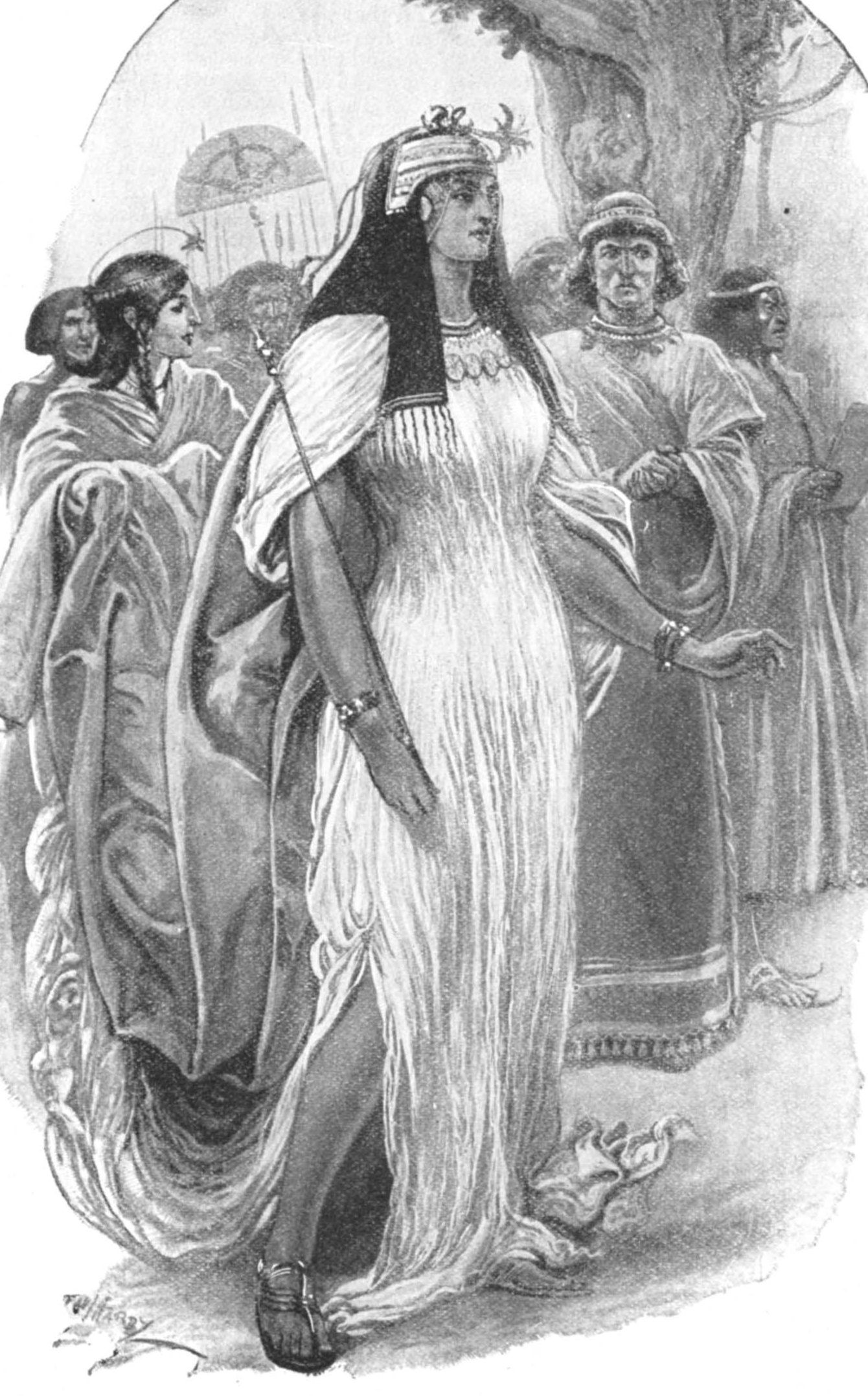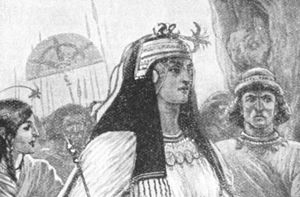
Twenty years after Solomon completed his magnificent temple, the Queen of Sheba arrived in Israel. Sheba was then part of Arabia.
The Queen came not just to test Solomon’s knowledge – rather, her questions were prompted by what she had heard about ‘his relation to the name of the Lord’ (1 Kings 10:1).
She sought spiritual understanding and, by doing so, provides a picture of the sinner seeking Christ.
Jesus’ own reference to the Queen of Sheba gives us warrant for this approach. Referring to his hearers’ response to his message, Christ said: ‘The Queen of the South will rise at the judgement with this generation and condemn it; for she came from the ends of the earth to listen to Solomon’s wisdom, and now one greater than Solomon is here’ (Matthew 12:42).
What she heard
‘The Queen of Sheba heard about the fame of Solomon’ (1 Kings 10:1). And having heard, she came to see him. The true seeker also hears of Christ, and comes to him for salvation.
Sadly, many who hear about Christ (even regular churchgoers) do not seek him in this way. But the sincere seeker hears and is drawn to Christ, just as the Queen heard about Solomon and came (John 10:27).
How did the Queen of Sheba hear about Solomon? We don’t know! But we know how seekers hear about Christ. Some have the example of Christian parents, the influence of faithful Sunday school teachers, or the earnest sermons of a devoted pastor.
Others hear through the witness of a faithful friend, the kindness of a Christian neighbour, a radio broadcast or a tract.
The Queen of Sheba heard about Solomon’s wealth and wisdom (1 Kings 10:4-7, note especially verse 7). But Christ is far richer and far wiser than Solomon.
He who is rich makes us rich. ‘For you know the grace of our Lord Jesus Christ, that though he was rich, yet for your sakes he became poor, so that you through his poverty might become rich’ (2 Corinthians 8:9).
He who is wise makes us wise. ‘You are in Christ Jesus, who became for us wisdom from God’ (1 Corinthians 1:30). Spiritual wisdom comes from God alone, through Christ alone.

What she did
‘The Queen of Sheba heard … [and] … She came to test him with hard questions’ (1 Kings 10:1). The Queen showed her determination by travelling a great distance.
Likewise, it demands effort for the sinner to seek ‘a greater than Solomon’. There is an urgency and intensity about the call to ‘seek the Lord while he may be found [and] call upon him while he is near’ (Isaiah 55:6).
Such was her determination that the Queen was not ashamed for her retinue to hear her asking Solomon questions. She was not afraid to display her ignorance about God. It is a sad fact that regard for the opinions of others keep many from earnestly seeking the Saviour.
We read also that the Queen of Sheba opened her heart to Solomon. ‘She came to Solomon and talked with him about all that she had on her mind’ (1 Kings 10:2).
Her conduct here is a model for both believers and unbelievers. We may safely tell ‘a greater than Solomon’ all our perplexities, doubts and fears. We must confess to him all our sins.
What she felt
The Queen was overwhelmed by Solomon’s wisdom (10:5). We may compare her reaction with that of Peter after the miracle of the great catch of fish. ‘When Peter saw this, he fell at Jesus’ knees and said: “Go away from me, Lord; I am a sinful man!”‘ (Luke 5:8).
Similarly, the apostle John testifies of the risen Christ: ‘When I saw him, I fell at his feet as though dead’ (Revelation 1:17). This is the only appropriate response when we realise the glory and holiness of the Lord Jesus Christ.
We also read that the Queen became convinced of the truth of all she had heard. ‘The report I heard in my own country about your achievements and your wisdom is true. But I did not believe these things until I came and saw with my own eyes. Indeed, not even half was told me’ (10:6-7).
The newborn Christian can echo the Queen’s sentiment – ‘not even half was told me’ – and wonders why believers did not tell him more. But how could we? He would not have understood! Only believers can know the preciousness of Christ.

What she said
The Queen spoke about the privilege of those who waited on Solomon’s words. ‘How happy your men must be! How happy your officials, who continually stand before you and hear your wisdom!’ (10:8).
So should believers rejoice in their privileges! There is no greater honour than to know God and hear his voice speaking to us in the Bible.
Furthermore, the Queen praised God for his goodness to Solomon: ‘Praise be to the Lord your God, who has delighted in you and placed you on the throne of Israel. Because of the Lord’s eternal love for Israel, he has made you king, to maintain justice and righteousness’ (10:9).
The God who delighted in Solomon delights even more in each one who trusts his Son. There is no special elite in God’s kingdom; every believer has access to God at all times.
What she gave
After praising God, the Queen of Sheba gave costly gifts to king Solomon (10:10). We cannot buy the divine King’s favour, but once we know Christ as Saviour and Lord we can give ourselves willingly to him
(Romans 12:1-2).
Those who know ‘a greater than Solomon’ understand the words of Isaac Watts:
Were the whole realm of nature mine,
That were an offering far too small;
Love so amazing, so divine,
Demands my soul, my life, my all.



